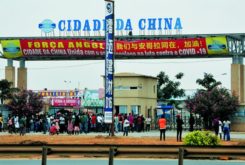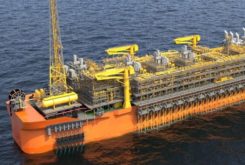CLBrief readers will need no introduction to the trials and tribulations of Lava Jacto, or Operation Carwash in English. The wide ranging corruption scandal tore the Brazilian political and business community asunder and its effects will be felt for many years to come. The fallout from the crisis has been felt in many other parts of the world, not least in the African Lusophone states, where the contracts secured by Brazilian conglomerates have come under suspicion and budgets have been cut because of the need for corporate belt tightening.
Some of the charges laid against former Brazilian president Luiz Inacio Lula da Silva and ex-Odebrecht chief executive Marcelo Odebrecht, the grandson of Odebrecht’s founder, concern alleged bribery relating to contracts awarded in Angola. The two men had already been found guilty of other charges but in late 2016 the Brazilian courts launched an investigation into 30 million reais in payments allegedly made by Odebrecht to Lula and others. The money appeared to have been paid in return for Brazilian National Economic and Social Development Bank (BNDES) funding for Odebrecht projects in Angola.
Odebrecht admitted paying a massive $788 million in bribes, mainly in Latin America, but also including $50 million in Angola and $900,000 in Mozambique. Under the government of President José Eduardo dos Santos Luanda said or did nothing in response to the revelations and it remains to be seen whether new president João Lourenço will act against the miscreants.
Much will depend on whether Odebrecht is able to retain its former influential position with the new government. It seems likely that it will, particularly as many of the officials remain the same, but also because the firm is already active in a country that badly needs economic diversification.
Attempts by anti-corruption campaigners and journalists to elicit comments from government officials have yielded little response. During the oil boom, Odebrecht invested heavily in a wide range of sectors in Angola, from agriculture to construction and mining. It quickly became the biggest private sector employer in the country, while Luanda was able to finance contracts from buoyant oil revenues.
Laúca hydro
Odebrecht is currently overseeing the construction of one of the biggest hydro schemes anywhere on the African continent. When completed, the Laúca plant on the River Kwanza will have generating capacity of 2,070MW – the same as the famous Cahora Bassa dam in Mozambique – from six units, providing a step increase in Angolan power production. The Brazilian firm holds the engineering, procurement and construction (EPC) contract on the hydro project itself and also on the development of 750km of transmission interconnectors to connect Laúca to the national grid.
The overall project carries a price tag of $4.3 billion but expected funding from BNDES for the transmission side of the venture failed to materialise, as the Brazilian development bank was forced to cut its lending in the wake of the multiple corruption scandals. However, in February Luanda secured a €247.8 million loan from the UK’s Standard Chartered Bank to cover the shortfall.
In August, Odebrecht secured a $993.4 million contract to operate and maintain the Laúca plant, plus the 960 MW Cambambe and 520 MW Capanda hydro schemes, which are also located on the Kwanza. The Capanda project is also to be modernised just 13 years after it was completed following 17 years of stop-start construction by a consortium of Russian firms. No details of the contract duration were released but, given its value, it is assumed to be very long term.
Even beyond the hydro sector, Odebrecht remains active across the Angolan economy but it is now selling as well as buying assets. In March, Odebrecht Mining Service Investments sold its 16.4% stake in diamond miner Sociedade Mineira da Catoca (SMC) to Wargan Holdings Ltd, an offshoot of Alrosa PJSC, a Russian firm. SMC is now 41% owned by Alrosa, with Angolan state owned firm Endiama holding another 41% and LL International Holding retaining 18%. However, the Brazilian firm has retained its 40% stake in bio energy firm Biocom, which expects to sell 20,300 cubic meters of ethanol, 100,000 tons of sugar and 110 GWh of electricity this year.
BNDES
Funding from BNDES to the African continent has been affected more widely. This has had a profound impact given that it had agreed to fund African projects to the tune of $4.7 billion by the start of Operation Carwash. One of the biggest casualties was the Moamba-Major hydro scheme in Maputo Province, which was already facing funding difficulties thanks to the decision to expand it to supply 760 million cu m/year of drinking water.
Main contractor Andrade Gutierrez halted work in 2016 when BNDES suspended funding for 25 overseas projects. It had previously agreed to provide $320 million towards total development costs originally estimated at $460 million but later increased to $700 million. According to government of Mozambique, an unnamed Chinese company is now in talks with the Brazilian construction firm over jointly developing the project. The scheme, which will supply water to Mozambique’s biggest urban and industrial centres, was originally supposed to have been completed in 2019.
Andrade Gutierrez has been forced into restructuring its operations and its debts in response to Operation Carwash, thereby reducing its African footprint. The company has, however, benefitted from the Brazilian government’s decision not to stick to its original plan of imposing a 40 billion reais ($12 billion) fine on the firm, which would probably have resulted in its bankruptcy. The final figure has not been decided but is expected to be much lower.
It remains to be seen whether the Brazilian government will retain its commitment to Africa in the face of its domestic economic difficulties and the involvement of African Lusophone countries in Operation Carwash. The original influx of Brazilian companies on the continent was accompanied by a diplomatic offensive by Brasilia. The country now has the fifth biggest embassy network on the continent, covering 39 countries, up from just 18 in 2003, although this was partly driven by Brazil’s desire to play a more prominent role on the international stage, exemplified by its unsuccessful campaign for a permanent position on the UN Security Council.
The relationship between the two has broadly been characterised by African oil exports to Brazil in return for investment in infrastructure projects by Brazilian construction companies but the picture is a little more nuanced than that. For instance, Brazilian food exports to Africa are growing strongly and not just to Portuguese-speaking countries.
However, there has been a big fall in trade between the two, in large part because of the collapse in commodity prices. Bilateral trade grew from $4.2 billion in 2003 to a peak of $28.4 billion in 2013 but fell steeply again to $12.4 billion in 2016. It remains to be seen what impact this will have on Brasilia’s African policy: it could see the continent downgraded as a priority; or the fall in trade could strengthen its determination to regain lost business.
Beyond Lave Jacto
It would be wrong to suggest that the financial difficulties of Brazil’s biggest companies can all be laid at the door of Operation Carwash. Mining giant Vale has struggled with high debt levels as a result of low commodity prices over the last five years.
CEO Fabio Schvartsman has now managed to have its total debts to $10 billion and the company reported pre-tax income of $3.9 billion for the second quarter of 2018, up from $2.7 billion for the same period in 2017, as the prices of some commodity have mounted at least a partial recovery. Throughout the difficult years, Vale remained steadfastly committed to Mozambique and the firm was in large part responsible for the $9.5 million invested in the country by Brazilian firms in 2015.
There are signs that the company’s confidence in the country and its investment in transport infrastructure are beginning to pay off. Vale Moçambique generated 97.3 billion meticais ($1.56 billion) in income last year, up 122% on the previous year. Its outstanding debt still stood at a massive 456 billion meticais ($7.8 billion) in December 2017, but the future now looks brighter, not least because of the appreciation of the real against the US dollar.
Vale Moçambique expects to export 15 million tonnes of coal this year, up from 11.2 million tonnes last year and just 5.6 million tonnes in 2016, as it brings its Moatize II project on stream. The company now ships all of its coal production at the Moatize mines from the Port of Nacala, rather than its original option of Beira.
However, the existing coal terminal at Nacala has handling capacity of just 18 million tonnes a year, so more rail and port capacity will be required, either at Nacala or the planned new port of Macuse. Parent company Vale generated $770 million in income last year when it sold a 15% stake in Moatize, plus a 50% stake in the Nacala railway to Japanese firm Mitsui, to help turn its own financial situation around.
Outlook
Operation Carwash has portrayed Brazilian business and politics in a very negative light. The depth of the bribery and corruption astounded many around the world. Yet the crisis also provides an opportunity for renewal at the heart of the nation. It could kickstart a compliance and good governance revolution that will not only benefit the South American giant but also the Lusophone world as a whole. This should only strengthen Brazilian-African economic relations.



